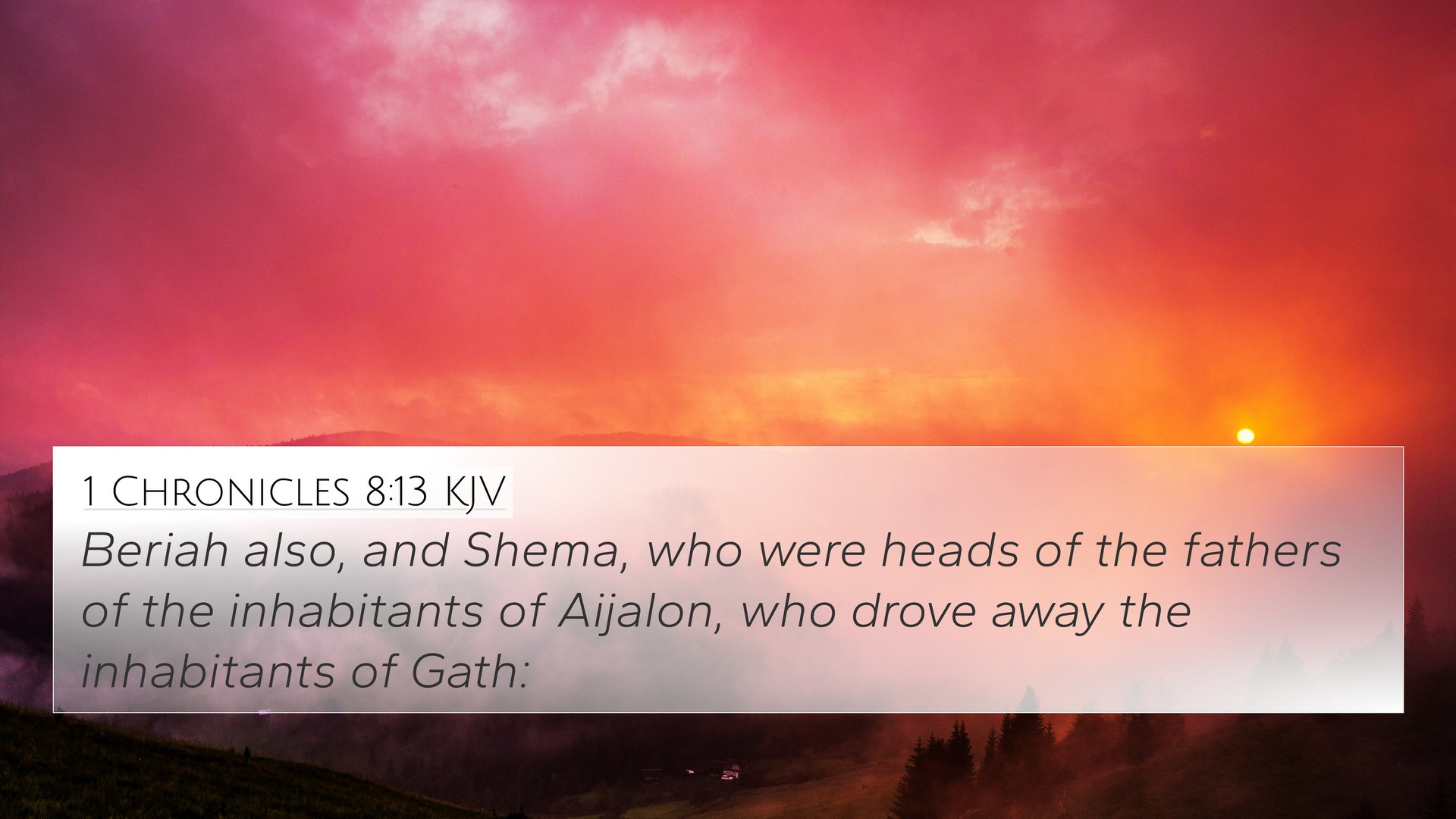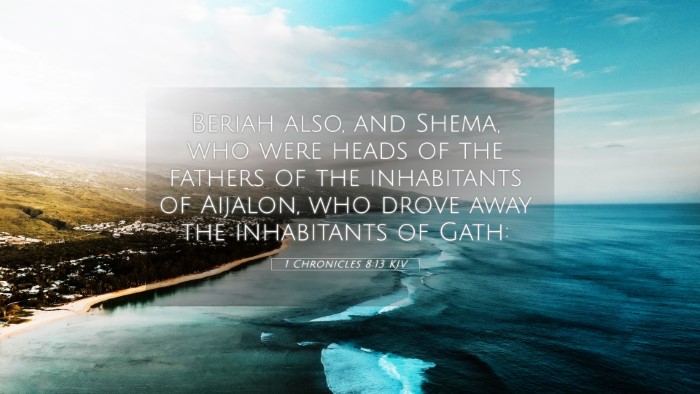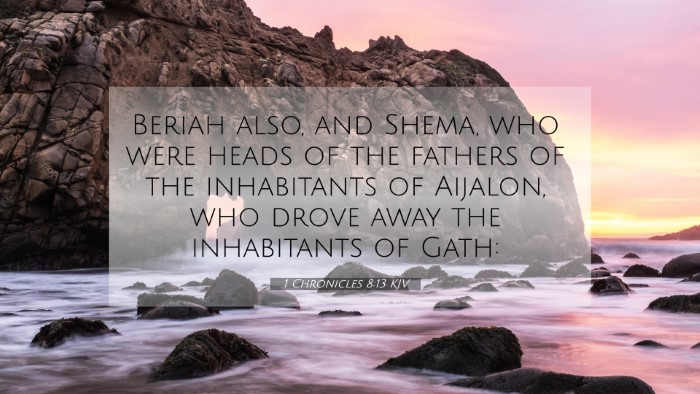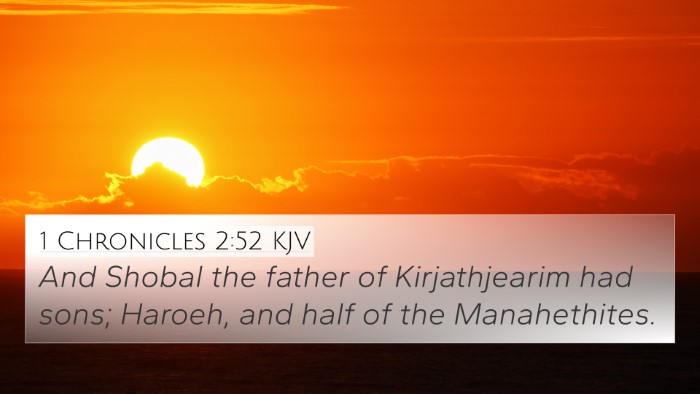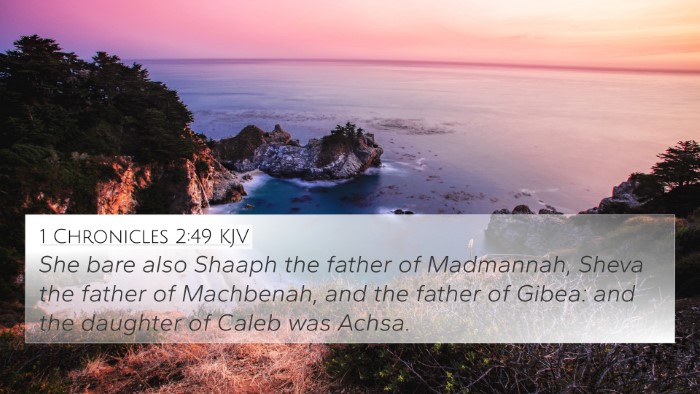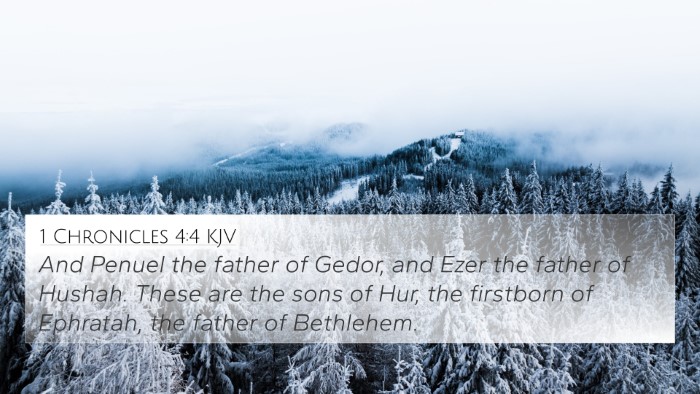Understanding 1 Chronicles 8:13
Bible Verse: 1 Chronicles 8:13
This verse lists the descendants of Benjamin, specifically mentioning Abiah, the founder of a significant line within the tribe. The genealogical record emphasizes the importance of heritage and lineage in ancient Israel.
Summary of Insights
The combined insights from public domain commentaries shed light on the significance of this verse within the historical and theological context of the Bible.
Matthew Henry's Commentary
Matthew Henry emphasizes the importance of genealogies in the Old Testament as a method of establishing identity and heritage. In his commentary, he points out that this section of 1 Chronicles serves to reaffirm the tribe of Benjamin's place within Israel's history. He discusses how genealogies memorialize God's faithfulness and the continuity of His covenant throughout generations.
Albert Barnes' Notes
Albert Barnes elaborates on the role of Benjamin's descendants, particularly noting the political and spiritual significance of tribes during the time of Israel's monarchy. He indicates that understanding these lineages aids in recognizing the fulfillment of God’s promises and the narrative arc of Israel’s history, particularly regarding the lineage leading to significant biblical figures.
Adam Clarke's Commentary
Adam Clarke provides insights into the specific names mentioned and their meanings. He highlights that Abiah's mention not only signifies a historical account but also a representation of God's ongoing work through the families of Israel. Clarke notes how the attention to detail in these genealogies demonstrates the importance of every individual in God’s ultimate plan and how He preserves the lineage leading to the Messiah.
Significance of Genealogies
Genealogical records such as this in Chronicles are crucial for several reasons:
- Heritage and Identity: They establish the lineage and identity of the tribes.
- Divine Fulfillment: They track the fulfillment of God’s promises to His people.
- Historical Context: They provide insight into the historical context of the nation of Israel.
Cross-References and Connections
This verse relates to several other passages that help to further understand the context and significance of the descendants of Benjamin:
- Genesis 49:27: Discusses the blessings of Jacob over his children, highlighting Benjamin's character.
- 1 Samuel 9:1-2: Introduces Saul, the first king of Israel, highlighting the prominence of the tribe of Benjamin.
- Matthew 1:12: Lists the genealogy of Jesus, indicating the importance of Benjamin’s line in the New Testament.
- Romans 11:1: Paul identifies himself as an Israelite from the tribe of Benjamin, connecting the New Testament to the Old.
- Jeremiah 37:13: Provides historical context during the Babylonian siege, relevant to the tribe's fate.
- Micah 5:2: Prophecies concerning Bethlehem and its significance in the line of David and the Messiah.
- Acts 13:21-22: Retells the rise of Saul, further connecting to Benjamin and setting the stage for Paul's life.
Understanding the Thematic Connections
This verse provides a foundation for thematic explorations such as:
- The Covenant of God: How God's promises extend through generations.
- Faithfulness in History: The importance of historical records in understanding God’s work.
- Messianic Lineage: The connection of genealogies to Jesus Christ.
Tools for Bible Cross-Referencing
To deepen your study, consider utilizing these tools and methods for cross-referencing:
- Bible Concordance: A reference tool that lists words and their occurrences in the Bible.
- Cross-Reference Bible Study: A method of studying the Bible that looks at related verses.
- Comprehensive Cross-Reference Materials: Books and software that compile Bible references and connections.
Conclusion
1 Chronicles 8:13 serves as a reminder of the rich heritage within the biblical narrative. Through cross-referencing related scriptures, one can trace the significance of the tribe of Benjamin and its representation in God's unfolding story, thus encouraging a deeper understanding of the connections between Bible verses.
